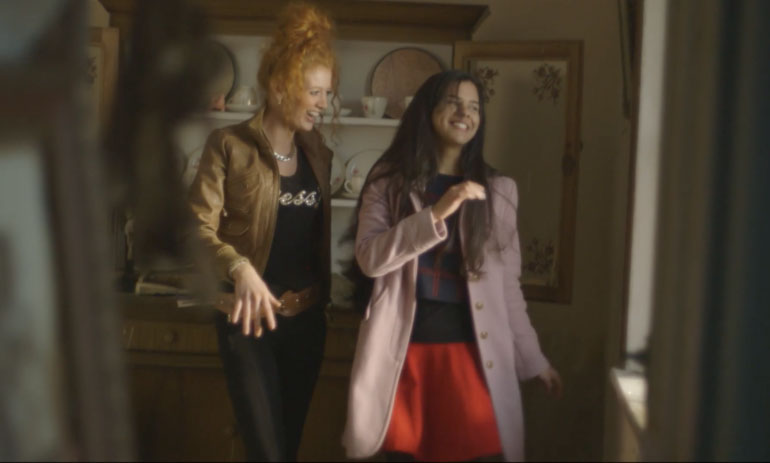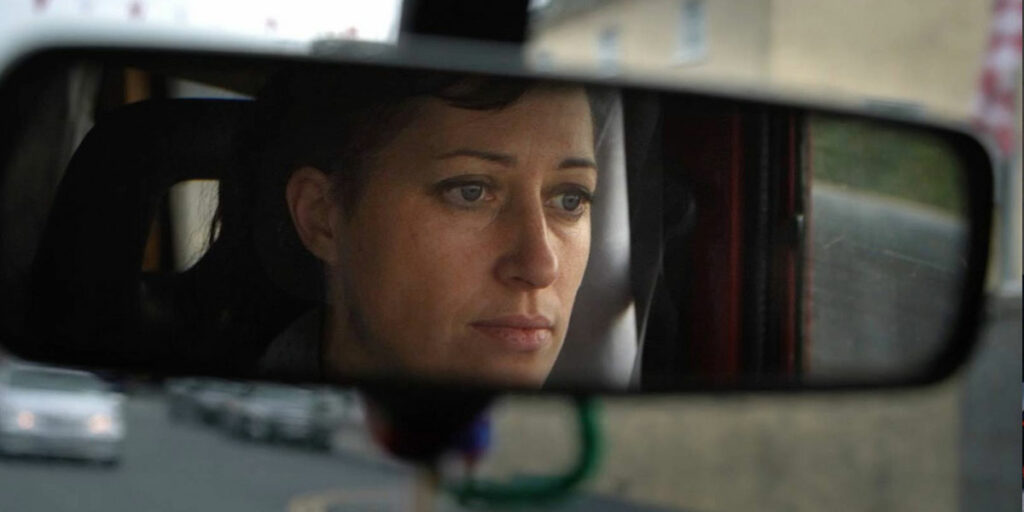Treasa O’Brien’s Town of Strangers blends documentary with fiction filmmaking to tell stories of ‘otherness’ at home in a rural Irish town.
There’s often a formulaic nature to films, be they documentary or fiction. We expect investigation from the former and imagination from the latter. Treasa O’Brien’s Town of Strangers, however, is an intriguing mixture of both. It’s a film that uses the stories of real people to tell its own, to explore the concept of ‘otherness’ in a poetic, engaging way that utilises the creativity of fiction but keeps it grounded in reality and empathy.
Gort, County Galway, is a small town in Ireland with a population of around 3000 people. Relatively unassuming, it boasts the title of Ireland’s most diverse town, with around a quarter of its inhabitants being non-Irish. O’Brien drives through the streets of Gort asking, via loudspeaker, for any and all willing locals to attend auditions and tell their stories. The call-up gives Town of Strangers a variety of subjects to explore: Brazilian, Afghan and Syrian migrants, Travellers, down-on-their luck locals, English new-age hippies and even O’Brien herself. It comes together as a hybrid of documentarian and fictional filmmaking, a myriad of interesting stories pieced together with odd sequences depicting its subjects’ memories and dreams.
The structure of Town of Strangers is a mix of interviews, scenes of ‘domesticity’ in its various forms throughout the town – be it farm auctions, people dancing to music blasting from car speakers, or simply at home or in work – and staged interludes that utilise O’Brien’s imaginative approach to filmmaking. The film started life as a scripted film, and transformed as O’Brien met and interacted with the people of Gort, who proved to be a much more interesting narrative to explore. As an academic and as a director, O’Brien isn’t interested in the binary idea that a film is either a documentary or fictional and as a result, her film is much more of an intriguing fusion of the two.

The film feels authentic and naturalistic, unconcerned with messy diegetic sound and awkward angles, but also stylised to tell a story of the ‘other’ experience in rural Ireland. There’s actually very little narrative propulsion, but it’s the complexities, nuance and diversity within the lives of these ‘ordinary people’ that acts as the draw here. Traveller Chloe who, at just 18, shyly talks about not being ready for marriage and wanting to get a job. Syrian refugee Elham, who enjoys making coffee but misses having her mother there to enjoy it with. Hippie Ralf, who glibly told his then-girlfriend he’d be back from Ireland in a few weeks seventeen years ago. And Hamid, who struggles with loneliness, depression and the complicated nature of ‘identity’.
O’Brien gives her subjects vague questions – ‘tell me your story’ and ‘what does home mean to you?’ – and lets their answers flow naturally to form a cohesive look at this small and yet incredibly diverse community. The film explores the harsh realities of the immigrant experience, the way a small town can feel both claustrophobic and incredibly freeing, and the complexities of being an ‘other’ in a place you consider ‘home’.
Town of Strangers is a fascinating blend of the simplicity of a documentary and the imagination of a fiction film. It explores the interestingly diverse stories from the people of a surprisingly diverse place, and captures both the essence of being a ‘stranger’ and of being at ‘home’. It’s a quirky, interesting and poignant look at the complexities of human existence, nestled away in a tiny town most of us will never see.
Town of Strangers was released in UK cinemas on February 10, 2023.

